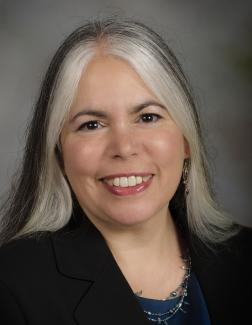Sustaining Our Passion for Community When Life Speeds Up
See all articles from this issue
I write this in October 2018 in anticipation of another successful and revitalizing NCFR annual conference. I can imagine my predecessors also felt the difficulty of forecasting what would be going on at the conference so that they could write this column before the conference occurs. For me, I think the sped-up pace of daily life and current events makes writing this column especially challenging. When life speeds up, however, I remember just how important it is to carry the energized spirit that the conference provides (whether you attend in person or via live-stream webcasts) with me all year long.
Bill Allen, NCFR president before me, wrote and spoke about our organization using the image of “the beloved community,” a phrase used by Dr. Martin Luther King Jr., referring to justice, equal opportunity, and love for one another. I am aware that what specifically constitutes justice and equal opportunity is contested—in this world and in our organization. The NCFR Board of Directors is working with the Inclusion and Diversity Committee (IDC) to continue to refine our message about what inclusion is and how to ensure that all voices are heard as we work toward justice and opportunity with a global reach (as this year’s conference emphasized). Our organization, and our very selves, are works in progress. I hope your experience participating at some level at the annual conference has been helpful in your sentiments toward NCFR as working toward being a beloved community and toward improving our selves in our professional and personal lives.
I want to mention a few follow-ups regarding the member surveys related to NCFR and policy. Recently, NCFR staff have highlighted journal articles, research briefs, and other resources with the public that are relevant to current issues, such as the detention of immigrants in the summer of 2018 and topics related to sexual assault in the fall of 2018.
Putting research published in NCFR journals into the eyes of the public is something that the vast majority of NCFR members endorsed in our surveys. I’m especially pleased that the staff has the capacity to do this promptly and that the social media presence they connect us to is quite large. I anticipate that the relevance of peer-reviewed research published in our journals and by our members will continue. If you have published research on a family-related topic that is suddenly in the headlines, I encourage you to reach out to Trip Sullivan, NCFR communications manager, at [email protected], who may share your work with the larger public. This visibility of your research is an added benefit of your NCFR membership. You can also help by sharing the posts and the tweets as they happen. And please do not hesitate to contact me, other board members, and the staff with questions or ideas about this work.
Involvement with NCFR, whether by attending the conference in person, virtually, or by accessing the other resources of the organization, is typically prompted by professional colleagues and promoted because of the benefits that the organization provides to our professional lives. The energy of participating in the conference in person is palpable and often carries us through the stress of the rest of fall semester, for those of us in academic jobs. I want to urge us to continue to have energy for being active participants in the organization throughout the year.
Spring is a time when we think about submitting to the conference in the coming year and a time when we think about nominating our colleagues (and ourselves) for awards. Spring might also be the time you are called on to carry out the tasks you volunteered for in the fall at the NCFR conference—so please remember to do those tasks and fulfill your commitments.
I know that the sped-up pace of modern life makes it challenging to devote time and energy to professional commitments, especially when there are many other demands on your time. My involvement in NCFR was prompted by deep gratitude to the people in the organization for the things they had done to help me in my career—mentoring within specific sections, journal editors taking time to encourage me, staff working to assist with arranging conference sessions, the joy of working closely with colleagues to advance families and relationships.
We Family Scientists know about bidirectional relationships, so I know we understand the need for mentoring and to be mentors throughout our professional careers. There are many opportunities to be involved in NCFR, and when you do so, you will be involved in mentoring as well. More than other professional societies, NCFR provides resources on mentorship and leadership. I am sure you all also got into this line of work because of a commitment to improve people’s lives at the most intimate level. What a privilege to be able to work in this field!


